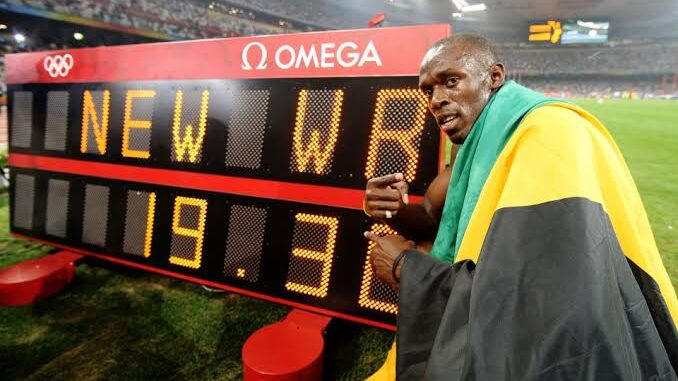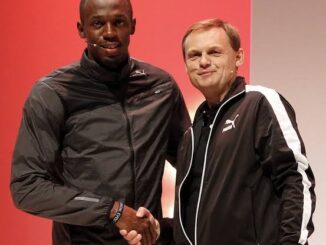
Usain Bolt’s World Record Under Threat by ‘Super Track’ That Could Help Athletes Smash Unprecedented Barrier…
Usain Bolt’s iconic 100m world record of 9.58 seconds, set in 2009 at the Berlin World Championships, has remained untouched for over 15 years. However, a new development in track technology could soon rewrite history. Enter the “super track,” a revolutionary surface designed by Feldspar Sport that is claimed to be up to 20% faster than traditional elite-level tracks. This innovation has reignited discussions around whether Bolt’s legendary time could finally be surpassed—and whether the elusive sub-nine-second 100m sprint is actually within reach.
The “super track” utilizes advanced polymers and energy-return technology, engineered to maximize speed and reduce fatigue. According to Feldspar Sport, the surface minimizes energy loss by redirecting more force back into the athlete’s stride. In other words, runners can maintain top-end speed for longer periods, giving them a performance edge. Early tests have shown that sprinters can improve their times by as much as 0.1 to 0.2 seconds, a significant margin in a race where hundredths of a second matter.
The debate around whether this type of aid should be permissible is heating up. Critics argue that such innovations blur the lines between human ability and technological enhancement. They worry that this could shift the focus away from athlete training and genetics, placing too much emphasis on external equipment. On the other hand, proponents highlight that innovation has always played a role in sports—from better spikes to aerodynamic gear—and that progress is inevitable.
Usain Bolt himself has responded to the reports with mixed feelings. While he is supportive of progress in athletics and welcomes innovation, he also believes that world records should be a testament to human performance under natural conditions. “Records are meant to be broken, but there’s something special about knowing they were set on a level playing field,” Bolt said in a recent interview.
Athletes like Noah Lyles, Fred Kerley, and Letsile Tebogo are being touted as the next possible record-breakers. With the 2025 World Championships and the 2028 Olympics on the horizon, the pressure to perform—and possibly run on this new track surface—is immense. If such technology becomes widely accepted, it could redefine the standards of sprinting for the next generation.
Governing bodies like World Athletics are currently reviewing the data and ethical considerations surrounding the “super track.” They are expected to release guidelines later this year that could determine whether it will be officially sanctioned for major competitions.
In the end, whether Bolt’s record stands or falls, his impact on the sport remains unshaken. He transformed sprinting with his charisma, dominance, and unprecedented speed. But as technology continues to evolve, it may take a new kind of athlete—fueled not only by training and talent but also by innovation—to carry the torch forward.



Be the first to comment